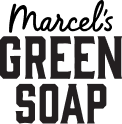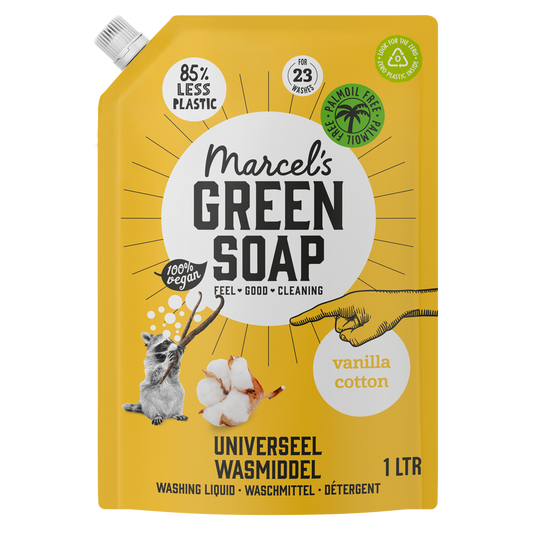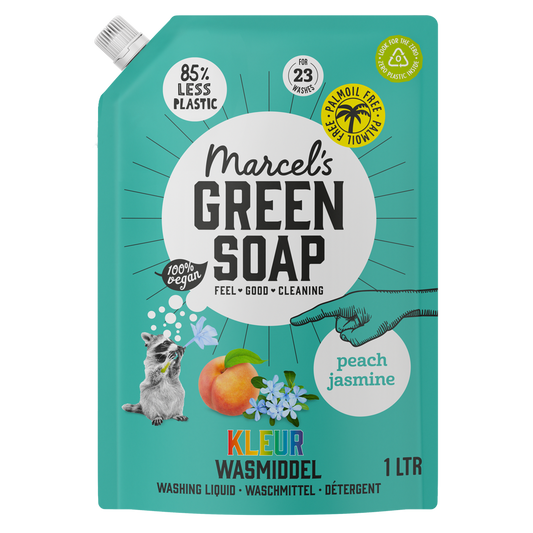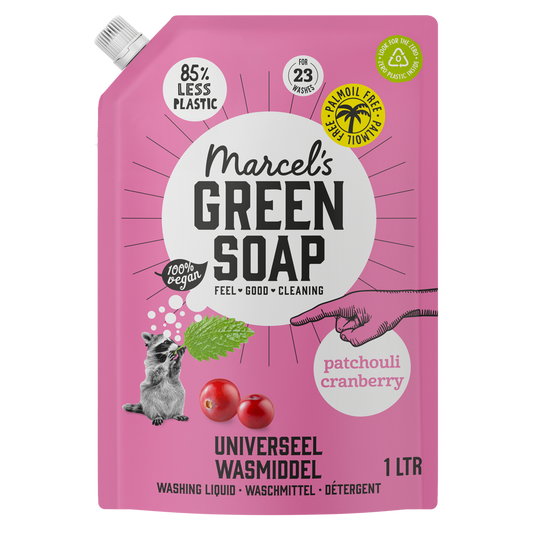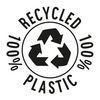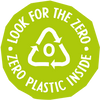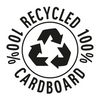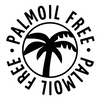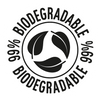WORLD ANIMAL PROTECTION X MARCEL’S GREEN SOAP
Marcel’s Green Soap recently partnered with World Animal Protection. This organization has been advocating for animal welfare for over 50 years. Their mission? A world where cruelty to animals no longer exists. Because issues like animal welfare, climate, and biodiversity are important to us too, we decided to join forces. Together with World Animal Protection, we can make an even greater impact. Interested in learning more about animal-friendly washing and the impact of palm oil on the planet? Our friends at World Animal Protection have written an article about it.
FEEL GOOD CLEANING
Marcel has always been transparent about what our brand stands for, what ingredients we use, and where our products are produced. His vision was, and still is, to change the world of soap. Marcel's kitchen cupboard was filled with aggressive, chemical products that weren't making the world any cleaner. He believed things could be different: a clean home and a healthy planet. He focused on developing ecological soap. That was the beginning of a line of vegan and almost entirely biodegradable products for your entire home and even for use in the shower. Ecological soaps in bottles made of 100% recycled plastic, good for you and for the planet. We call it Feel Good Cleaning. But we've been feeling less and less good about using palm oil in our products.
HANDLING PALM OIL DIFFERENTLY
We've all seen the images of rainforests being cleared to make way for palm oil plantations. We find this distressing. Rainforests are responsible for over 80% of the Earth's biodiversity. Additionally, rainforests, like those in the Amazon region, play a crucial role in absorbing CO2. The vegetation on our planet, of which the Amazon is a significant part, absorbs a quarter of all the CO2 we emit. Moreover, vast amounts of CO2 are stored in forests, including in trees and charcoal. When that is released, it has a major impact. That's why it's so important to protect the remaining rainforests. This got Marcel thinking. If this continues, the Earth will continue to warm. Will the Earth still be livable for his three daughters in a few years? There must be another way to handle ingredients like palm oil, right?
SLOWING THE GROWTH OF NEW PALM OIL PLANTATIONS
The world population is growing, and the demand for palm oil will only increase. The only solution to slow the growth of new palm oil plantations is to use less palm oil. That's why Marcel decided to make his detergent, the product we all (almost) use daily, palm oil-free. With this product, we can make the most impact together. Additionally, detergent is a product where you'll notice less if palm oil is omitted. How so? Let us explain. The surfactants (the foaming and dirt-dissolving agents) in some of our products are made from palm oil. Palm oil is a wonderful product that works very well, requires little of it, and is a relatively inexpensive ingredient. That's also why the world loves palm oil so much: it's very difficult to create a formulation that works just as well, feels just as nice, and is just as affordable.After much testing and experimenting, we succeeded with our detergent. Detergent has the advantage of containing enzymes alongside surfactants that dissolve dirt (these enzymes take over some of the work of the surfactants). Plus, you don't touch detergent with your hands, so you won't notice the difference. This applies to all other products like shampoo, making it much harder to create an equivalent product without palm oil. Additionally, replacing palm oil in all products is not the solution.
WHY COMPLETELY REJECTING PALM OIL ISN'T THE SOLUTION
We believe completely rejecting all palm oil is not the answer. No other plant oil performs better environmentally than palm oil. Palm oil has a very high yield per hectare (4-10 times higher than other plant oils), requires few pesticides and fertilizers for cultivation, and requires little irrigation. Many products could use coconut oil or a blend of soybean oil, rapeseed oil, and sunflower oil to replace palm oil. However, coconut oil and soybean oil are also tropical products. They have a lower yield per hectare than palm oil, increasing the risk of deforestation (resulting in biodiversity loss and additional greenhouse gas emissions from land conversion) even more than palm oil. Thus, completely replacing palm oil with coconut oil or soybean oil is not environmentally friendlier.
BUT WHAT THEN?
We believe it's important as a brand to do our part and focus on slowing the growth of new palm oil plantations. Together, we can ensure that rainforests no longer have to make way for new palm oil plantations. There are enough palm oil plantations on our planet; we don't need more. Let's explore other routes together and find new ways to handle palm oil. Let's be more mindful about palm oil. For example, choose products without palm oil where it's easy to do so and opt for sustainable palm oil when it's difficult to replace palm oil in products.
WHAT IS SUSTAINABLE PALM OIL?
All our suppliers of palm and coconut oil ingredients are certified sustainable palm oil suppliers by the Roundtable on Sustainable Palm Oil (RSPO). The RSPO is an international organization where companies and environmental organizations (including WWF and Oxfam Novib) work together to make palm oil cultivation more sustainable worldwide. Palm oil with the RSPO label must meet many requirements. For instance, the cultivation of sustainable palm oil must not have affected natural forests or the habitat of endangered species. Plantations are also prohibited on peatlands. Moreover, there are requirements regarding pesticide use, wastewater management, energy, and greenhouse gas emissions. The label also includes criteria for respecting workers' rights and the rights of local communities.By being more mindful about palm oil together, we can make a difference. Will you join us? Try our palm oil-free detergent now and truly wash clean.
Sources: Milieu Centraal, World Animal Protection, WWF, RSPO, NOS

